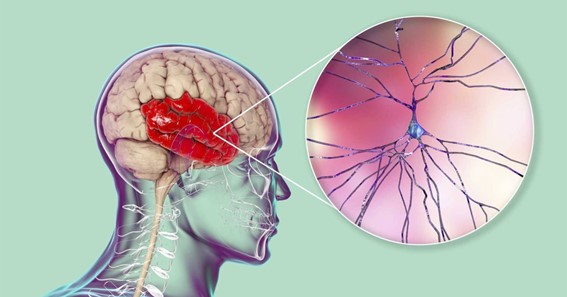When one’s body system is severely deficient in vitamin B1, Wernicke’s disease develops. Damage to the brain and memory is caused by a vitamin deficiency.
Nobody anticipates getting sick, but we all know that it’s one thing we can’t avoid. The presence of in your body is not a death sentence.
Learn how to recognize Wernicke’s illness early on and what needs to be done to treat it by reading this blog post.
What is Wernicke’s Disease?
In honor of Russian neuropsychiatrist Sergei Korsakoff and German neurologist Carl Wernicke, this disease was given their names.
In the absence of thiamine (Vitamin B1) in the body, this disease or disorder affects the brain and memory. Your body uses thiamine, an essential vitamin, to turn food into energy.
There are two distinct types of Wernicke syndrome: Korsakoff syndrome, which affects long-term memory, and Wernicke encephalopathy, which is a sudden, severe (acute) brain disorder.
How to Diagnose Wernicke’s Disease
Since Wernicke encephalopathy is diagnosed clinically, there are no specific laboratory tests for the condition. However, the healthcare provider may advise blood tests to check thiamine and blood sugar levels.
A blood alcohol test and a liver function test are frequently used by healthcare professionals to look for indicators of alcohol use disorder. Damage to the liver is a common symptom of this illness.
Causes Of Wernicke’s Disease
Severe alcohol use disorder is frequently correlated with thiamine deficiency.
Although persistent alcoholism is the primary cause of Wernicke encephalopathy, other conditions such as severe malnutrition, hyperemesis gravidarum, extended parenteral nutrition, malignancies, immunodeficiency syndromes, liver disease, hyperthyroidism,
and severe anorexia nervosa can also cause it.
Due to decreased thiamine absorption from the gut, probable genetic susceptibility, an inadequate diet, decreased thiamine storage in the liver, and other nutritional inadequacies, chronic alcohol use may result in thiamine insufficiency.
How to Treat Wernicke’s Disease
Wernicke’s disease is a serious condition that needs prompt medical attention. The goal of treatment is to repair the thiamine shortage in the brain as soon as possible.
Even though Wernicke encephalopathy may present with acute or chronic illness onset, it is still a medical emergency and a reversible condition that calls for prompt emergency care.
The optimum thiamine dosage for Wernicke encephalopathy may reach 500 mg administered parenterally one to three times per day. Dosing by mouth is unreliable and not advised. If there is no improvement, stop taking the supplement and determine whether you need supportive care (unless the patient is comatose).
Thiamine is most efficiently administered parenterally, which also allows for quick administration. The acute disease can transform into chronic Korsakoff syndrome in some circumstances, though, because of lingering neurological impairments.
100 mg of parental (intravenous or intramuscular) thiamine has been the standard dosage in American treatment plans for 3–7 days. Some experts advise administering 500 mg intravenously three times per day for two to three days.
Continue giving 250 mg parenterally if there is a partial response for 5 days or as long as the improvement lasts.







